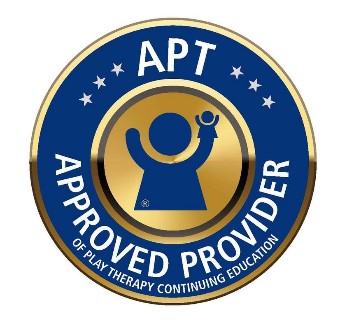Play Therapy with Teens and Adults
Learn play therapy tools you can use with teens and adults!
Description
In this exciting and entertaining workshop, you will get to experience a wide variety of fun play therapy activities that you can use with your teen and adult clients. Our focus will be on creative strategies that play therapists can use to "hook" adolescents and adults into engaging fully in the therapeutic process. Through these play therapy interventions, clients can gain a sense of belonging, develop positive identities, increase self-esteem, build meaningful relationships, gain personal power in positive ways, and practice appropriate expression of feelings, including anger. The presenter will use structured play therapy interventions; art techniques; and movement, music and dance exercises built on a foundation of Adlerian play therapy concepts and strategies.
 4 Non-Contact CE hours (Includes 2 Play Therapy Seminal or Historically Significant Theories, 2 hours on Play Therapy Skills and Methods, etc.) This workshop meets APT's definition of "Live Webinar."
4 Non-Contact CE hours (Includes 2 Play Therapy Seminal or Historically Significant Theories, 2 hours on Play Therapy Skills and Methods, etc.) This workshop meets APT's definition of "Live Webinar."
APT Approved Provider 99-055

League of Extraordinary Adlerian Play Therapists (LEAPT) has been approved by NBCC as an Approved Continuing Education Provider, ACEP No. 7402. Programs that do not qualify for NBCC credit are clearly identified. League of Extraordinary Adlerian Play Therapists (LEAPT) is solely responsible for all aspects of the programs.
Objectives
- Describe 2 play therapy techniques they can use to build relationships in play therapy with adolescent and adult clients.
- Describe 2 play therapy techniques they can use to explore lifestyle in play therapy with adolescent and adult clients.
- Describe 2 play therapy techniques they can use to help adolescent and adult clients gain insight in play therapy.
- Describe 2 play therapy techniques they can use in play therapy to help adolescent and adult clients make changes in thinking, feeling, and behaving.
- Describe an art techniques they can use in play therapy with adolescent and adult clients to help them learn to build meaningful relationships and gain a sense of belonging.
- Describe a movement, music, and dance techniques they can use in play therapy to help adolescent and adult clients enhance their healthy expression of feelings.
Agenda
9:00 AM - Begin
11:00 AM - Break (15 min)
1:15 PM - End